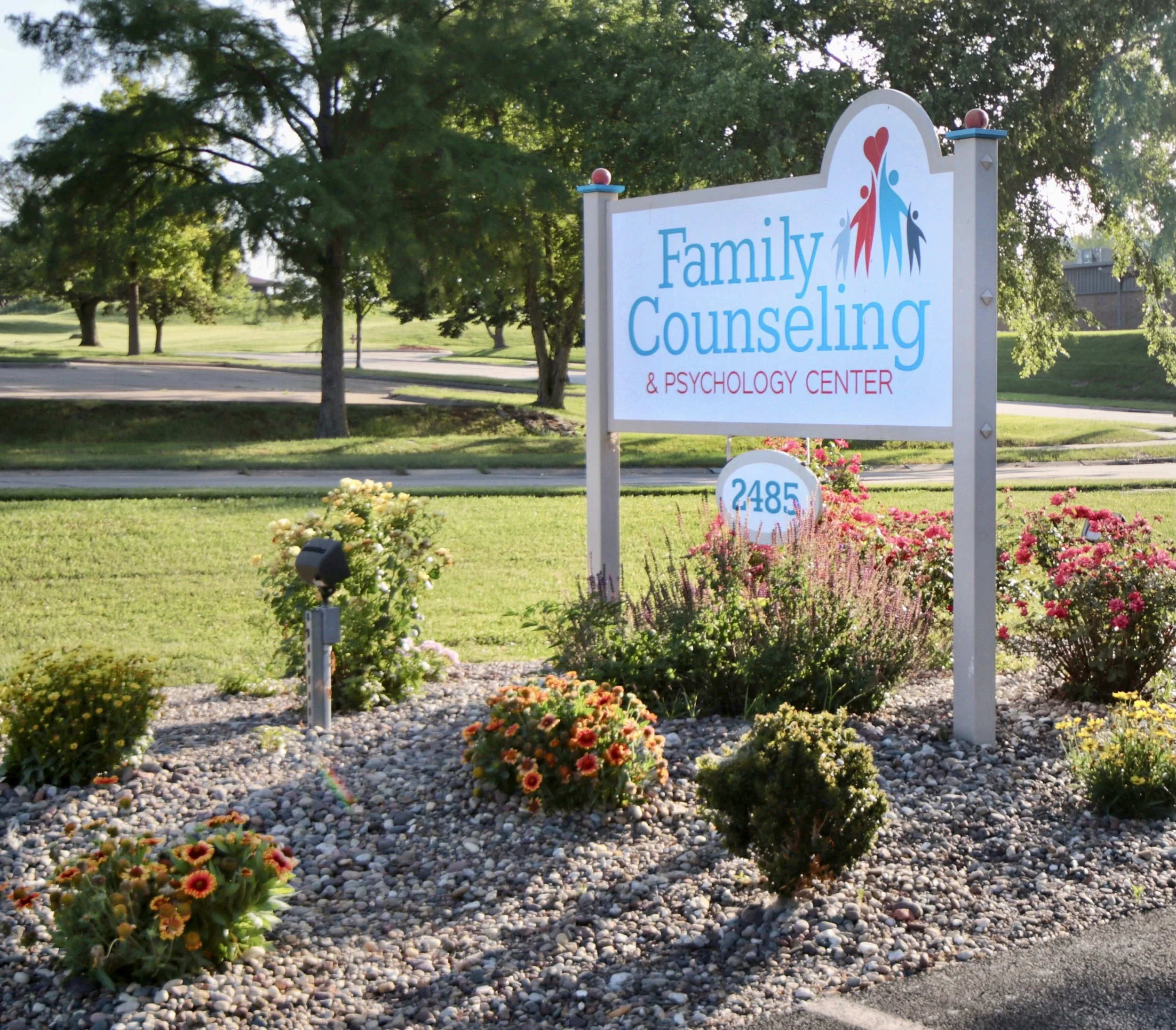Services
Family Counseling & Psychology Center's experienced staff offers a full range of therapeutic services for adults, children and families who are in our care. Our services include a variety of individual psychotherapy techniques, family counseling services, marital counseling services and group counseling services. We also offer psychological evaluations, psychological testing, and educational testing for adults and children.
Our Masters' Level Counselors and Psychologists have extensive training and experience in treating the following problems and disorders:
Addictions
Anger Management
Anxiety
Attention Deficit Hyperactivity Disorder
Autism
Bipolar Disorder
Child Abuse and Neglect
Child and Adolescent Behavior Problems
Depression
Dialectical Behavior Therapy (DBT)
Dissociative Disorders
Divorce
Domestic Violence
Eating Disorders
Educational Testing
EMDR, Eye Movement Desensitization and Reprocessing
Gender Identity Issues
Grief and Loss
Learning Disabilities
Marital/Relationship Problems
Obsessive Compulsive Disorder
Parenting Problems
Personality Disorders (i.e., Borderline Personality Disorder, Dependent Personality Disorder, etc.)
Post Traumatic Stress Disorder
Pre-Marital Counseling
Schizophrenia
School Problems
Sexual Abuse Treatment
Somatic Disorders
Stress Management
What Type of Counseling?
At Family Counseling & Psychology Center, our diverse staff has training in many different types of therapy including: Cognitive Therapy, EMDR, Eye Movement Desensitization and Reprocessing, Rational-Emotive Therapy, Play Therapy, Family Systems Therapy, Solution Focused Therapy, Problem-Solving Therapy, Reality Therapy, Motivational Interviewing Therapy, Relapse Prevention Therapy, and many others.
It will be up to you and your therapist to determine what type of treatment will be used. This includes deciding if individual, family or group counseling is best for you. However, it also includes deciding what type of psychotherapy will be used. For example, Cognitive Therapy is a leading treatment for depression, anxiety disorders and anger problems. This type of therapy focuses on the individuals thinking patterns and how they affect mood and behavior. Research has shown that individuals who are experiencing depression tend to think in a negative manner. Research has shown that if they are taught to think in healthier and more positive ways, they will start to feel better. If you are experiencing depression, anxiety or anger problems, there is a good chance that your therapist will want to use some aspects of cognitive therapy to help you.
If you have a young child who is struggling to verbalize his or her feelings, then Play Therapy may be recommended. In Play Therapy young children are given materials that allow them to express their fears, worries and feelings through play.
If you have a problem with addiction, then your therapist is likely to use Relapse Prevention Strategies which include identifying triggers that often lead to relapse and coming up with a detailed plan to prevent relapse. Another type of treatment that may be used is Dialectical Behavior Therapy or DBT. This is a modified form of cognitive therapy that helps people with emotional regulation, stress management, and relationship skills. It is especially effective for people who have difficulty managing and regulating their emotions.
These are just a few of the many treatment strategies that are available. Again, it is up to you and your counselor to discuss which treatment is best for you.
What to expect:
Making a decision to make an appointment can be difficult. It is common to be nervous. It may make it easier if you know what to expect.
Forms
Before your first appointment you will be asked to fill out some forms. You can get many of these forms online so you can take your time at home in completing them. Many people want to know why there are so many forms and questions. Keep in mind that the governing bodies that oversee our profession, as well as insurance companies, require that we have these forms and that this information is documented in each client's file. If you have questions about any of the information, please ask your therapist during the first appointment.
Initial Appointment/Evaluation
After the forms are completed, you will meet with your therapist. The goal of a first appointment is for your therapist to get to know you and to get a thorough understanding of what the problem is so that he or she can begin to formulate a treatment plan to help you feel better. This is part of the evaluation phase. During a first appointment, your therapist may ask a lot of questions. These questions may pertain to a history of the problem, details of the problem, symptoms that you are experiencing, etc. Your therapist may also ask you to fill out some questionnaires as part of the initial evaluation. Often one session is not enough time to gain all pertinent information so future sessions are also used to complete the initial evaluation.
Once the evaluation phase is complete, your therapist will discuss his or her recommendations about treatment. This often includes coming to agreements on the type of treatment, the goals of treatment, and who will be involved in treatment.
Treatment
The treatment phase involves regular appointments where you and the therapist are working to help you feel better and to meet treatment goals. At any point, if you have questions or concerns about your treatments please don't hesitate to ask your therapist. It is important that you and your therapist work together as a team to accomplish the goals you have set.
Final Phase
The final phase is after treatment goals have been met. The termination phase is where you and your therapist review treatment goals and review the progress made during counseling. Your therapist will talk to you about the need for follow up and will clarify any recommendations that he or she may have.

